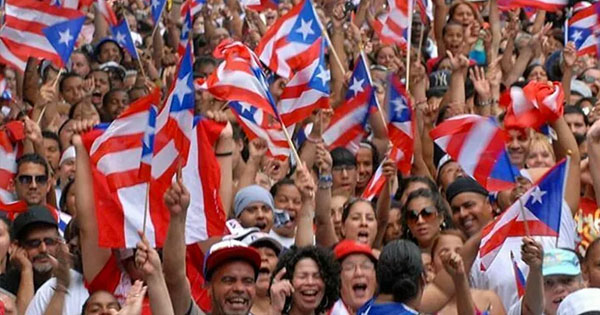More than three-quarters of Puerto Ricans identified as white on the last census, even though much of the population on the island has roots in Africa. That number is down from 80 percent 20 years ago, but activists and demographers say it is still inaccurate and they are working to get more Puerto Ricans of African descent to identify as black on the next census in an effort to draw attention to the island’s racial disparities.
All residents of Puerto Rico can select “Yes, Puerto Rican” on the census to indicate their Hispanic origin. But when it comes to race, residents must choose among “white,” “black,” “American Indian,” multiple options for Asian heritage, or they can write something in. Most Puerto Ricans choose “white.”
But the Trump administration’s slow response after Hurricane Maria and other natural disasters has made many Puerto Ricans reconsider their decision to identify as white Americans, said Kimberly Figueroa Calderón, a member of Colectivo Ilé, a coalition of Puerto Rican educators and organizers who are campaigning for more Puerto Ricans to identify as black on the 2020 census. “We are not the ‘citizens’ that we think we are,” she said.
After Hurricane Maria, Maricruz Rivera-Clemente, the founder of Corporación Piñones se Integra, said it took longer for electricity to be restored in Loíza than in the capital, San Juan, and other parts of the island. “We have the same electrical connection, the same electrical source as Isla Verde,” Ms. Rivera-Clemente said, referring to a popular tourist area in San Juan. “We had no electricity until two months later.”
Bárbara I. Abadía-Rexach, a sociology professor at the University of Puerto Rico and a member of Colectivo Ilé, was shocked when she learned how many Puerto Ricans identified as white on the last census. “How do I fit into a country where I am a minority?” said Dr. Abadía-Rexach, who was born on the island and identifies as a black woman.
Colectivo Ilé has held educational workshops across the island, teaching residents about the impact of the census and the achievements of Afro-Puerto Ricans, such as the historian Arturo Alfonso Schomburg and the singer Ruth Fernández. They also teach about the contributions of African civilizations, hoping to inspire people to check “black” or write-in “afrodescendiente,” or of African descent, on the census.
“There are people that don’t want to use the word black because they think it’s an insult, and there is still that idea that we need to ‘better the race,’” Dr. Abadía-Rexach said, referring to mejorar la raza, a popular saying in Latin American countries that suggests light skin is more desirable than dark skin.
Many Puerto Ricans say they also feel that choosing black erases their unique cultural identity — including language, food and customs — and aligns their experience too closely with that of African-Americans on the mainland.
“We are clear on the fact that we want to minimize the number of people identifying as white and increase the number of people that identify as black,” added Gloriann Sacha Antonetty-Lebrón, another member of Colectivo Ilé.
